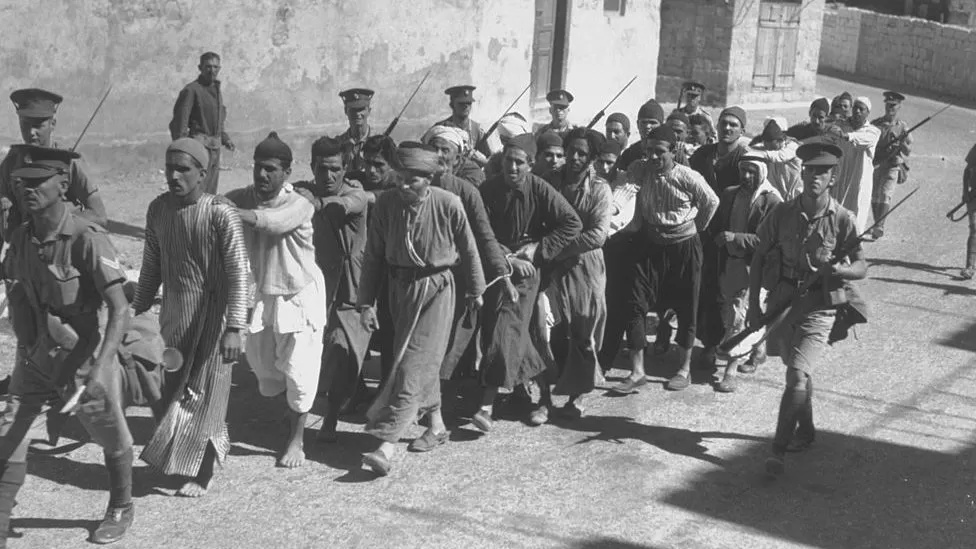The United Kingdom seeks apology for war crimes during the British rule in Palestine
It was the autumn of 1938 when UK forces lunched a devastating crackdown against Palestinian resistance in al-Bassa village after dawn carrying out arbitrary killings, torture, the use of human shields and the introduction of home demolitions as collective punishment.
“The whole country became something of a prison,” says Prof Hughes, author of Britain’s Pacification of Palestine.
Munib al-Masri, 88, a well-known Palestinian business owner and former politician, who was shot and wounded by British troops as a boy in 1944.
“[Britain’s role] affected me a lot because I saw how people were harassed… we had no protection whatsoever and nobody to defend us,” Mr. al-Masri told the BBC at his home in Nablus in the occupied West Bank.
Two senior international lawyers, Luis Moreno Ocampo, former chief prosecutor at the International Criminal Court, and Ben Emmerson KC, former UN Special Rapporteur on human rights and counter-terrorism. were asked to carry out an independent review of the evidence.
Mr. Emmerson said that “shocking crimes committed by certain elements of the British Mandatory forces systematically on the Palestinian population”.
The independent review revealed other atrocities in the summer of 1939 when British soldiers from the Black Watch regiment carried out a weapons search of the village of Halhul, in the West Bank.
13 people died of dehydration, while at least one was shot trying to escape.
“They started digging the soil to try to eat the roots. They put wet dirt on their skin just to try to cool down,” Mr. Abu Rayan told the BBC at his home in Halhul.
“After 48 hours treatment most of the men were very ill and 11 old and enfeebled ones died. I was instructed that no civil inquest should be held,” wrote then-district commissioner Edward Keith-Roach in a private letter.
Fred Howbrook, a British officer said UK forces would go to villages and “smash up a few houses, things like that” while residents could only watch.
“Britain should see the ways and means to compensate… [to] be brave and say: ‘Sorry I did this’,” Mr. Munib said
Shortlink for this post: https://daysofpalestine.ps/?p=27619








